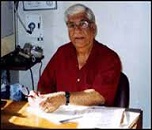About Conference
The 10th International Conference on Physiotherapy is set to take place on April 10-11, 2024, in the vibrant city of Bangkok, Thailand. This esteemed conference serves as a premier platform for physiotherapists, researchers, healthcare professionals, and industry experts from around the globe to come together and exchange knowledge, insights, and best practices in the field of physiotherapy.
With a focus on the latest advancements, research findings, and innovative techniques in physiotherapy, this conference aims to foster collaboration, promote interdisciplinary approaches, and enhance patient care outcomes. Attendees can look forward to a comprehensive program featuring keynote sessions, panel discussions, workshops, and poster presentations covering a wide range of topics
Participants will have the opportunity to network with peers, engage in discussions with renowned speakers and experts, and gain valuable insights that can be applied to their clinical practice and research endeavors. Whether you are a seasoned physiotherapy professional or a student eager to learn and grow in the field, the 10th International Conference on Physiotherapy promises to be a stimulating and enriching experience.
We look forward to welcoming you to Bangkok for this exciting conference and to collectively contribute to the advancement of physiotherapy and patient care worldwide.
Who Attends
-
Physiotherapists
-
Occupational Therapists
-
Orthopedic Surgeons
-
Sports Medicine Physicians
-
Kinesiologists
-
Rheumatologists
-
Geriatricians
-
Chiropractors
-
Pediatricians
-
Medical and Allied Healthcare Professionals
-
Fitness Trainers
-
Geriatric Physiotherapits
-
Researchers
-
Students
Tracks/Sessions
Musculoskeletal physiotherapy focuses on the assessment, diagnosis, and treatment of injuries, disorders, and conditions affecting the muscles, bones, joints, ligaments, and tendons. Physiotherapists specializing in this area use a variety of techniques such as manual therapy, exercise prescription, and modalities like heat or ice therapy to help patients recover from musculoskeletal disorders or manage chronic conditions.
Neurological physiotherapy focuses on restoring movement and function in individuals with neurological conditions such as stroke, traumatic brain injury, multiple sclerosis, Parkinson's disease, and spinal cord injuries. It involves specialized assessments and interventions to improve muscle strength, balance, coordination, mobility, and overall functional abilities. Techniques may include neurodevelopmental therapy (NDT), gait training, balance exercises, motor control retraining, and use of assistive devices.
Manual therapy techniques involve hands-on treatments that physiotherapists use to assess, diagnose, and treat musculoskeletal conditions and injuries. These techniques can include joint mobilizations, manipulations, soft tissue massage, stretching, and therapeutic exercises. By applying precise and targeted pressure, manipulation, or movement to affected areas, manual therapy aims to improve joint mobility, reduce pain, increase flexibility, and enhance overall physical function. Physiotherapists often customize manual therapy sessions based on the individual's specific condition and needs, providing a personalized approach to rehabilitation protocols and recovery.
Vestibular rehabilitation is a specialized form of therapy aimed at addressing balance and dizziness disorders caused by inner ear or vestibular system dysfunction. Through targeted exercises and techniques, vestibular rehabilitation helps improve coordination, reduce vertigo and dizziness, enhance postural stability, and restore confidence in daily activities. This type of therapy may involve gaze stabilization exercises, balance training, habituation exercises to desensitize the vestibular system, and functional movements to improve overall mobility and quality of life.
Hydrotherapy and aquatic physiotherapy involve the use of water-based exercises and treatments to aid in rehabilitation and improve physical function. This form of therapy takes advantage of the unique properties of water, such as buoyancy, viscosity, and hydrostatic pressure, to facilitate healing and promote mobility. Both hydrotherapy and aquatic physiotherapy play a valuable role in enhancing physical well-being, reducing pain, and promoting recovery in individuals of all ages and abilities.
Occupational Physiotherapy focuses on promoting and maintaining the health, safety, and well-being of workers in various industries. It involves the assessment, prevention, and management of work-related injuries and conditions to ensure employees can perform their job tasks effectively and safely. Occupational Health Physiotherapy plays a crucial role in enhancing productivity, reducing absenteeism, and improving overall workplace wellness
Pain management and relief are fundamental aspects of physiotherapy aimed at improving the quality of life for individuals experiencing pain. Physiotherapists employ a range of techniques to assess and address pain, including manual therapy, exercise therapy, electrotherapy, and education on pain coping strategies. The goal is to reduce pain intensity, improve mobility and function, and enhance overall well-being. By tailoring treatment plans to each patient's unique needs and goals, physiotherapists play a crucial role in helping individuals manage and alleviate pain effectively.
Posture correction and ergonomics are essential aspects of physiotherapy aimed at improving musculoskeletal health and preventing injuries. Proper posture ensures that the body is aligned correctly, reduce Muscular Dystrophy, joints, and ligaments. Ergonomics, on the other hand, focuses on designing workspaces and equipment to optimize comfort and productivity while minimizing the risk of musculoskeletal disorders. Physiotherapy plays a crucial role in promoting overall musculoskeletal health, reducing pain and discomfort, and improving quality of life.
Sports physiotherapy is a specialized branch of physiotherapy focused on the prevention, assessment, and treatment of injuries related to sports and physical activity. Sports physiotherapists work with athletes of all levels, from recreational to professional, to help them recover from injuries, improve performance, and prevent future injuries. Sports physiotherapy involves developing personalized training programs to enhance strength, flexibility, agility, and endurance, tailored to the specific demands of each sport.
Respiratory physiotherapy, also known as pulmonary rehabilitation, focuses on improving lung function and managing respiratory conditions such as asthma, chronic obstructive pulmonary disease (COPD), cystic fibrosis, and pneumonia. This specialized area of physiotherapy aims to enhance breathing patterns, increase lung capacity, and improve overall respiratory endurance through a combination of exercises, breathing techniques, airway clearance methods, and education on self-management strategies.
Telehealth and digital innovations in physiotherapy represent a significant advancement in healthcare delivery, particularly in the context of remote patient care and accessibility to rehabilitation services. Telehealth and digital innovations in physiotherapy represent a significant advancement in healthcare delivery, offering tailored solutions, improving accessibility, enhancing patient engagement, and ultimately optimizing treatment outcomes.
Assistive technologies play a crucial role in modern physiotherapy, revolutionizing the way patients receive care and enhancing their overall rehabilitation experience. Assistive technologies also include therapeutic modalities such as electrical stimulation devices, ultrasound machines, and laser therapy units. These modalities help in reducing pain, promoting tissue healing, and improving muscle function, thereby accelerating the recovery process for patients undergoing physiotherapy.




